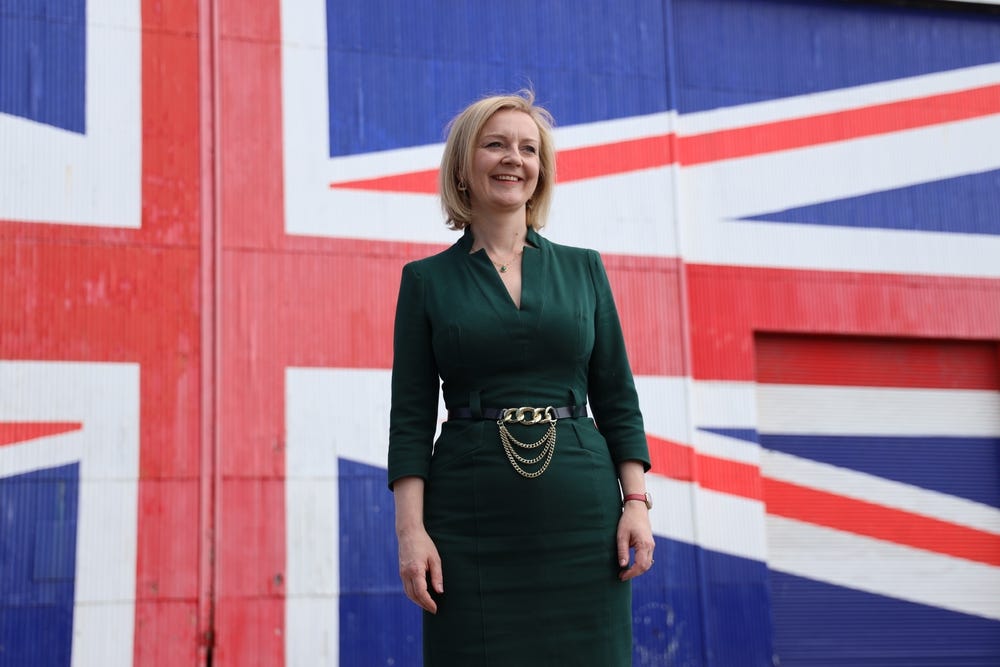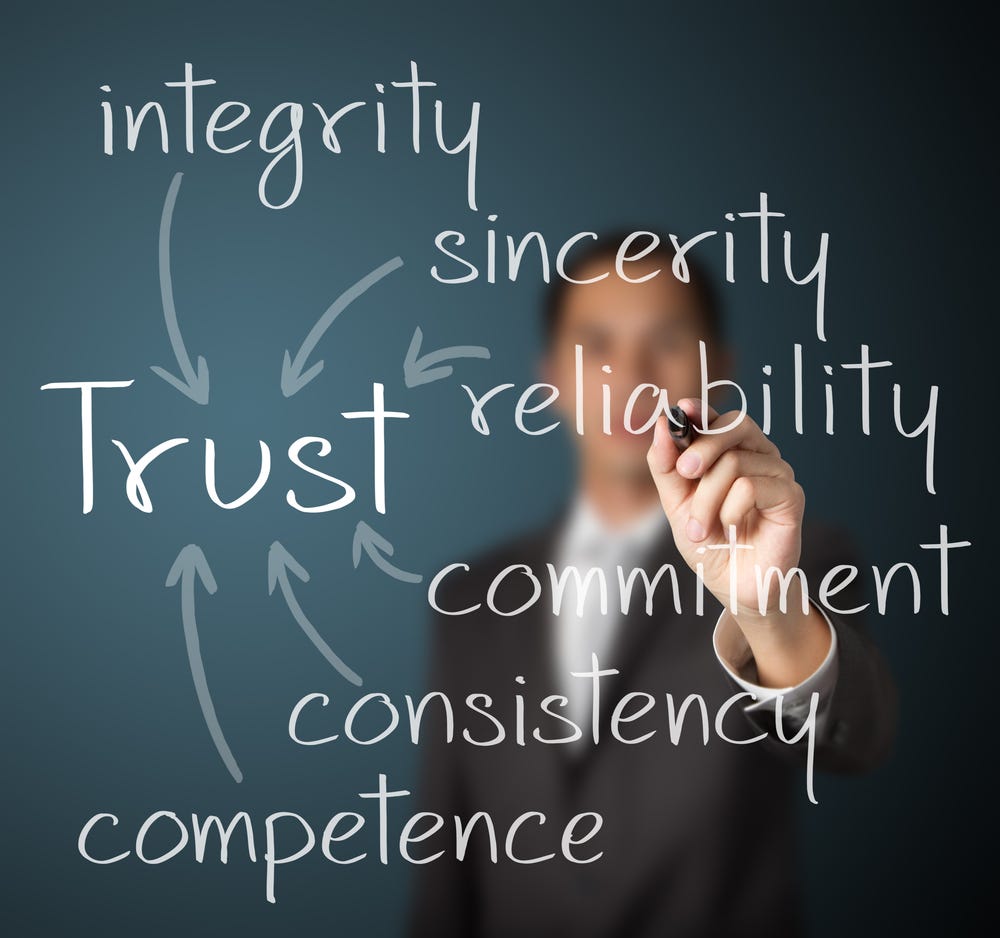E-Pluribus | September 19, 2022
When diversity apparently doesn't count, overcoming tribalism, and education's trust deficit.
A round-up of the latest and best writing and musings on the rise of illiberalism in the public discourse:
Pamela Paul: When Diversity Isn’t the Right Kind of Diversity
From our founding, Pluribus has been pointing out the problem with some of the definitions of common words used in public discourse that result in the two sides talking past one another. “Diversity” was the topic of an early essay on our site. The recent election of Liz Truss as prime minister of Great Britain has provided a tremendous example of the moving target “diversity” has become, writes Pamela Paul in The New York Times.
Liz Truss, the new Conservative prime minister, announced her cabinet, and for the first time ever, not a single member of the inner circle — what’s referred to as the Great Offices of State — is a white man.
The home secretary, Suella Braverman, is the daughter of Kenyan and Mauritian immigrants. The mother of Foreign Minister James Cleverly emigrated from Sierra Leone. The new chancellor of the Exchequer, Kwasi Kwarteng, was born to Ghanaian parents.
Did the left break into applause? Were there hosannas throughout progressive Twitter heralding this racial, ethnic and gender diversity as a step forward for society?
Not exactly.
Instead, the change was dutifully relayed, often with caveats. “Liz Truss’s cabinet: diverse but dogmatic,” noted The Guardian. The new team was criticized as elite, the product of schools like Eton, Cambridge and the Sorbonne. These people aren’t working class, others pointed out. They don’t sufficiently support the rights of those seeking asylum in Britain or policies that address climate change.
“It’s a meritocratic advance for people who have done well in education, law and business,” Sunder Katwala, the director of British Future, a think tank that focuses on issues of immigration, integration and national identity, told CNN. “It’s not an advance on social class terms.”
[ . . . ]
The trouble is that for many of the same people, ethnic and racial diversity count only when combined with a particular point of view. Even before Truss’s cabinet was completed, one member of the Labour opposition tweeted, “Her cabinet is expected to be diverse, but it will be the most right-wing in living memory, embracing a political agenda that will attack the rights of working people, especially minorities.”
Read the whole thing.
Bernice B. Donald and Don R. Willett: How to counter today’s tribalism and build ‘a more perfect union’
What do an African American, female, Obama-appointed judge and a white, male, Trump-appointed judge have in common besides being judges and now Washington Post opinion writers? Much more than you might think, to hear them tell it. Bernice Donald and Don Willett co-wrote an essay on the advent of Constitution Day to share some ideas on how to overcome the rancor and division that too often characterize our public discourse and spill over into our private lives as well.
Log off. In today’s hot-take culture stoked by social media, the art of disagreeing agreeably seems quaint. The snarling, sneering and sniping are on full display in a realm we know well: modern law schools. Online incivility seems to fuel real-life boorishness. Earlier this year, a panel at Yale Law School brought together lawyers from the left and right to tout the importance of free speech. Chaos ensued. That is what happens when views held by the “other side” are deemed no longer debatable but disreputable. Better to reject venomous online voices — and promote civility in the physical world.
Learn up. The civics IQ of “We the People” is not exactly Mensa-level. According to the 2022 Annenberg Civics Survey, most American adults cannot name all three branches of government, and 25 percent cannot name a single one. The judicial branch is likely the least understood — especially by those who depict the judiciary as hijacked by craven politics. Facts are hostile witnesses. The Supreme Court’s rate of dissent today is no higher than it was in 1945, when eight of nine justices had been appointed by the same president. Besides, fixating on the Supreme Court is distorting: Ninety-nine percent of federal cases go no higher than regional circuit courts. That’s where we serve, and we can attest, as research has shown, that roughly 98 percent of circuit-court decisions are unanimous — hardly a sign of ideologically driven judging.
Reach out. Genuine across-the-aisle friendships are rare today. According to an NBC News-Generation Lab poll last month, about half of college sophomores say they wouldn’t date, or even choose as a roommate, someone who didn’t vote as they did in the 2020 presidential election. Americans too often hunker down in like-minded echo chambers, marinating in confirmation bias, rarely encountering, much less befriending, anyone who sees the world differently. Cross-party friendships are no easy feat. But if Justices Antonin Scalia and Ruth Bader Ginsburg could do it, so can we — and so can you.
Read it all here.
Frederick M. Hess and Hayley Sanon: Educators Have Lost the Public’s Trust. How Can They Get It Back?
The education establishment has taken it on the chin for years now, and the pandemic, along with growing examples of “wokeness” taking over the schools, aren’t helping. Writing for The Dispatch, Frederick M. Hess and Hayley Sanon of the American Enterprise Institute have documented some of the troubles and what educators themselves can do to begin earning back public trust.
[T]here’s an entire industry of fly-by, high-priced teacher trainers providing mandatory workshops who can give parents the impression that unhinged revolutionaries have set up shop in their schools. In Virginia’s Loudoun County, trainers have taught educators that that an attachment to notions of “individual achievement,” “individual thinking,” or “self-expression” is a racist hallmark of “white individualism.” In Seattle, teachers learned that the U.S. is a “race-based white-supremacist society” whose school system commits “spirit murder” against black children, and that white teachers need to “bankrupt [their] privilege in acknowledgment of [their] thieved inheritance.” In Buffalo, teachers have been directed to promote “queer-affirming network[s] where heteronormative thinan be enough to erode trust—especially when the union’s response is to counterpunch rather than clean house. That’s when trust disintegrates.
For an instructive example from outside of schooling, consider how this has played out in policing. Some prominent anti-police voices will acknowledge that the lion’s share of cops may be personally virtuous—but then argue that’s not the issue. The point, they say, is that they’ve seen enough misconduct that they’ve lost faith in police professionalism, are skeptical even of the “good” cops, and doubt that police departments are willing or able to address malfeasance.
Read it all.
Around Twitter
Thread from Liz Wolfe of Reason on a huge media blind spot:
Cathy Youth tweaks Noah Smith’s new definition of “woke”:
Finally, via the Foundation for Individual Rights and Expression, when it came to free speech, our founders practiced what they preached and what they wrote into our Constitution from the very start. Listen to the podcast excerpt below:









